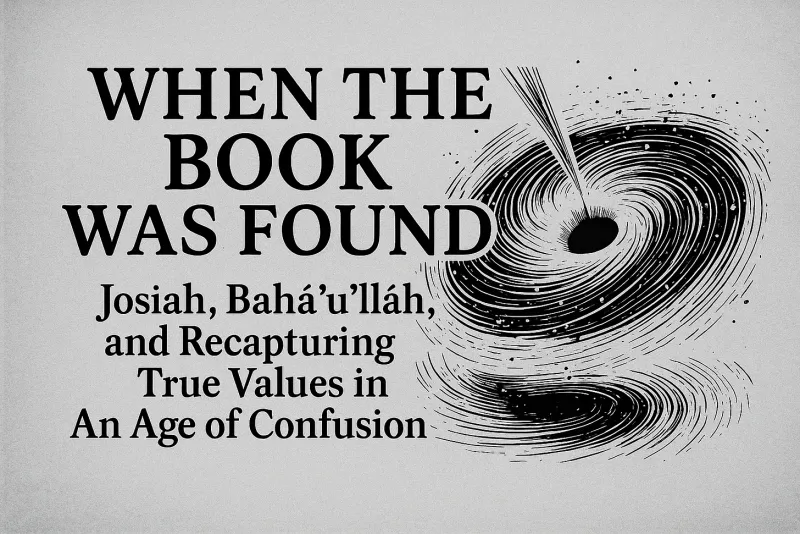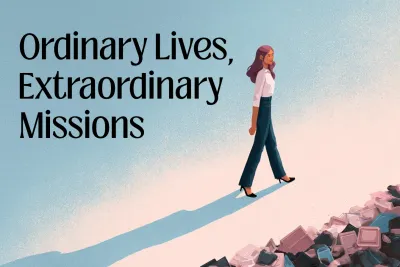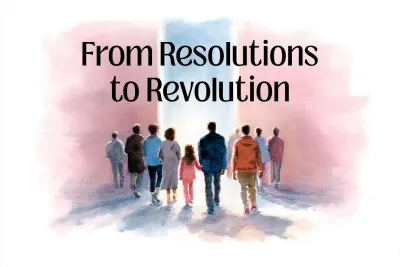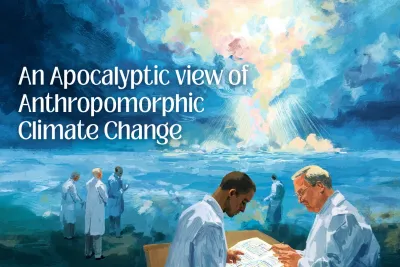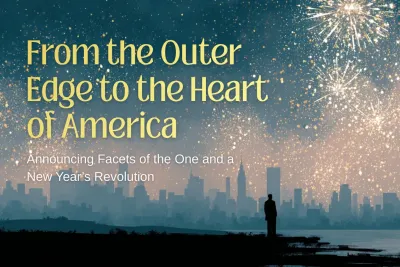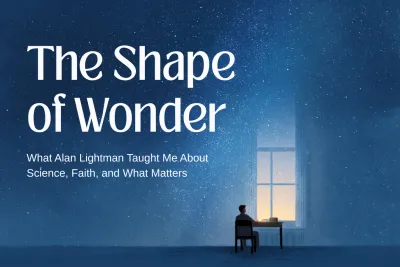When the Book Was Found: Josiah, Baha’u’llah, and Recapturing True Values in An Age of Confusion
There’s a story told in the Hebrew Scriptures, tucked into the pages of 2 Kings and 2 Chronicles, about a young king named Josiah. It begins in an age of spiritual forgetfulness and moral confusion—a story that, if we’re honest, feels uncannily familiar in our own supposedly “progressive” moment.
Josiah, just eight years old when he ascended the throne, inherited a kingdom adrift. The temple of God had fallen into neglect, idols littered the land, and the living memory of Moses’ law—the very spiritual DNA of Israel—lay buried, unknown. Josiah sought reform, but his heart’s real turning point came in an unexpected form: his workers, rummaging through the ruined temple for forgotten treasures, stumbled upon a greater one—the long-lost Book of the Law.
When Josiah heard those ancient words read aloud, he didn’t just receive new information—he was pierced to the heart. He tore his clothes in grief, realizing how far his people had wandered from the foundation intended by God. And so began one of the most comprehensive renewals in Israel’s history—not built on novelty, but on rediscovery. The nation repented. The idols came down. The covenant was renewed—not only by the king, but by the people—who recognized that the true treasure wasn’t gold, but the Word.
Why This Story Still Cuts to the Bone
Like Josiah, I’ve found myself living—and ministering—in an age when many believe we’ve outgrown the “old forms.” There is a rush toward newness for its own sake. In a world surging with spiritual confusion, cut loose from ancient roots, there are countless voices peddling the latest trends, promising “freedom” but delivering only greater fragmentation.
As a Bahá’í, I’m called—by Bahá’u’lláh Himself—to move forward with the times, to recognize the dawn of a new revelation. Yet Bahá’u’lláh also commands each of us to honor and study the scriptures of the past. As ‘Abdu’l-Bahá put it: “The Bible and the Gospels are most honored in the estimation of all Bahá’ís. It is the religious duty of every Bahá’í to read and comprehend the meanings of the Old and New Testament.” (Star of the West, vol. 14, no. 1)
There’s a reason for this, and Josiah’s discovery points to it: If you lose touch with the Word—the living water at the very root of your life—nothing you build, not even in the name of “progress,” will last long. Without solid foundations, even the brightest new structures crumble.
The Godlessness That Corrupts the Water
It’s not just neglect that jeopardizes the living water; it’s contamination. The spiritual air we breathe is thick with self-invention, with a kind of naiveté disguised as freedom. I saw this unfold firsthand, because, while I at first embraced the era I grew up in - the 1960s and ‘70s - what some called the “dawning of the Age of Aquarius” I realized in 1979 that the excesses of the summer of love had turned into Sex, Drugs and Rock and Roll” and foresaw the “progressive” slide into godless immorality. Meanwhile, throngs of bright, idealistic souls swelled the ranks of the Bahá’í Faith, carrying forward a more positive view, that the spirit of love and openness would lead to global peace and unity—on the wave of a new spirituality untethered from the “intolerant” past.
But the bankruptcy of excess freedom was painfully clear to me, for reasons outlined in my first book, The People of the Sign. What passed for enlightenment was so often just a headlong flight from accountability—a sincere, but ultimately shallow rejection of the wisdom embedded in the stories and laws God gave us throughout history. Too many rejected the Word (in all its forms) as “obsolete,” trading the hard-won discipline of the Law for a kind of moral fast-food—tasty, but lacking in nourishment.
This is why I made a seemingly “retrograde” decision: I went to Ambassador College, a place committed not to riding the latest spiritual currents, but—like Josiah—to “recapture true values.” There, I immersed myself in scripture and pursued the conviction that “The Word of God is the Foundation of Knowledge.” I learned that progress has meaning only if it’s measured against a fixed point; living water stays pure only if its source is untainted.
Progressive Revelation: Forward Motion With Deep Roots
It’s a difficult, delicate balance—to be true both to the spirit of the age and the foundations that make any age possible. The Bahá’í concept of Progressive Revelation is not a license to dissolve the past; it’s a call to recognize the unfolding of God’s plan, each stage building on the previous ones.
With Adam, we received language—the Word—a choice between the Tree of Life and the knowledge of good and evil. With Moses, we received Law, the bedrock of collective life, and the clear injunction: “I set before you life and death—therefore, choose life.” With Jesus came forgiveness, the breaking open of the closed system of sin and law, an offer to return to life through grace. And with Bahá’u’lláh, we receive a new command: Unity—true and living, not mere sentiment—a vision that encompasses both the ancient and the new, breadth without betrayal of depth.
We move forward by honoring the pattern Bahá’u’lláh Himself followed: never tearing away the roots, but drawing up the waters so that the tree might grow anew.
Don’t Throw Out the Baby With the Bathwater
We are living in a world that is all too eager to throw away the baby with the bathwater—to forget the Law while pursuing “freedom,” to disdain the ancient while idolizing novelty, to conflate unity with uniformity or, worse, with indifference. As Baha’is, we are uniquely positioned—and uniquely responsible—to resist this drift.
We must have the courage to look deeply into the past, to rediscover the Book of the Law wherever it has been hidden or neglected, and to let ourselves, like Josiah, be cut to the heart. To see how easily the pure water is muddied when we let the values of the world set the standard, rather than the revealed Word.
The Call Today: Both and More
The real challenge isn’t to choose between the old or the new—but to be at home in both, to be a people who “recapture true values” precisely by knowing what is essential and what must be renewed. To champion justice, equality, and unity as God defines them—not as the world rebrands them. To hold tight to the Book, even as we welcome the new Day with joy. As Bahá’u’lláh declares: “Happy are they that observe God’s precepts; happy are they that have recognized the Truth; happy are they that judge with fairness in all matters and hold fast to the Cord of My inviolable Justice.”
May we, like Josiah, discover anew the treasure hidden in the temple’s ruins—may we weep, repent, and rejoice as we remember whose we are and for what purpose we have been called. Only then can we move forward into the age of fulfillment, bringing with us the pure living water so desperately needed by our world—untarnished, unwavering, and fully alive.
“The Word of God is the foundation of knowledge.”Our times demand both courage and humility—the courage to move forward, and the humility to remember, rediscover, and revere that which was true before the age began.

